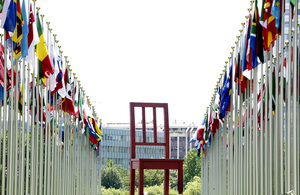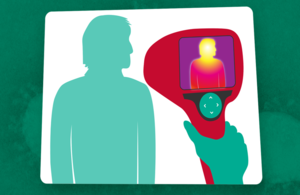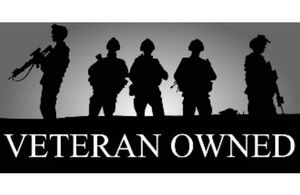- Figures are valued at £2 million and thought to be more than 1,800 years old
- Excavated from the villa of the Emperor Antoninus in the 1790s
Culture Minister Caroline Dinenage has placed a temporary export bar on two marble figures of Celtic Hounds carved during the Roman period.
The figures, thought to have been completed in the 2nd century AD, are one of two surviving sets from the period and have been valued at £2,000,000 plus VAT. They are at risk of being lost abroad unless a UK buyer can be found.
The figures depict a male and female celtic hound and are made of white marble, possibly north Italian or Greek. The male hound is seated upright with his head tilted upwards, tail between his legs and wearing a studded collar. The female is seated and wearing a wide studded collar with her right foreleg raised. Parts of both figures bear signs of historic restoration in the 18th century.
The figures are outstanding examples of ancient sculpture. The Committee noted the exceptional craftsmanship and remarkable, fine carving on the female figure. The inclusion of collars on both sculptures implies that they may have been household pets which offers a valuable insight into and understanding of the display of sculpture in antiquity, especially in Roman imperial villas.
The figures were excavated from the villa of the Emperor Antoninus in 1795 – 1796 and became part of the collection of Thomas Hope, who formed one of the most renowned art and antiques collections in the country.
Culture Minister Caroline Dinenage said:
These exquisite figures show that even nearly 2,000 years ago, dogs held a special place in people’s hearts. The beautifully carved hounds are two rare survivors and it would be a great shame to see them lost abroad.
Despite these challenging times I hope that a UK museum or gallery is able to come forward and save these figures for the benefit of the nation.
The Minister’s decision follows the advice of the Reviewing Committee on the Export of Works of Art and Objects of Cultural Interest (RCEWA). The committee noted that the figures were outstanding examples of ancient sculpture with significant British provenance.
RCEWA member Stuart Lochhead said:
Excavated from the villa of the Emperor Antoninus in 1795-6 this pair of hounds, naturalistically rendered in marble, were acquired soon after by the great neoclassical collector and decorator Thomas Hope who displayed them in his London home, partly open to the public, for almost 50 years.
The remarkable provenance and the fact there are only two other similar sets of hounds surviving from antiquity make these objects a fascinating and important view into the display and use of sculpture in antiquity and their subsequently profound influence on early 19th century British taste and cultural history. They are interwoven in so many ways to our cultural heritage that their export abroad would represent a great loss to the nation.
The RCEWA made its recommendation on the grounds of the figure’s outstanding significance to the study of the history of collecting in the UK and their display and use in antiquity.
The decision on the export licence application for the figures will be deferred until 2 October 2020. This may be extended until 2 February 2021 if a serious intention to raise funds to purchase it is made at the recommended price of £2,000,000 plus VAT .
ENDS
Notes to editors
Organisations or individuals interested in purchasing the figures should contact the RCEWA on 0845 300 6200.
Download an image of the two Roman figures of Celtic Hounds
Details of the figures are as follows:
- The objects consist of two roman marble figures of Celtic hounds, dated around the 2nd century AD. They are made of white marble, possibly north Italian white marble, but also possibly Greek (Thassian or Parian), exact provenance of marble cannot be easily surmised.
- The male hound is seated upright with his head tilted upwards, wearing a studded collar, its body with a visibly defined ribcage, seated with its tail between his legs on a base.
- The female Celtic hound is shown seated wearing a wide studded collar, the slender body naturalistically carved, with her right foreleg raised, her hips and left paw resting on an integral arch-shaped base. Her muzzle, ears, part of the neck and the lower half of the raised right foreleg bear signs of historic restoration (probably conducted in the 18th century).
- The objects are 74.5cm and 68cm high respectively. The sculptor or school that produced the hounds is unknown.
Provenance:
- Found among the ruins of Antoninus Pius’ Laurentine Villa, by Prince Chigi, at Torre Paterno, circa 1795-6, as recorded by C. M. Westmacott, British galleries of Painting and sculpture, London, 1824.
- Thomas Hope (1769-1831) collection, acquired in Italy circa 1795-1803; and thence by descent to Lord Henry * Francis Hope Pelham-Clinton-Hope (1866-1941). Originally displayed as a pair in the statue gallery, Duchess Street, London, 1804-1849. The hounds were subsequently moved to Deepdene House, Dorking, Surrey, where Adolf Michaelis recorded them in the Gallery of the Entrance Hall.
- Catalogue of the Celebrated Collection of Greek, Roman & Egyptian Sculpture and Ancient Greek Vases, Being a Portion of The Hope Heirlooms; Christie’s, London, 23-24 July 1917, lots 226 and 227.
- Purchased from the above sale by a UK collector, for 720 gns and 280 gns each; and thence by descent.
- Sold at auction to the present owner 3 July 2019
- Bonham’s, 3 July 2019, lot 151 where sold to the present owner
The Reviewing Committee on the Export of Works of Art and Objects of Cultural Interest is an independent body, serviced by The Arts Council, which advises the Secretary of State for Digital, Culture, Media and Sport on whether a cultural object, intended for export, is of national importance under specified criteria.
The Arts Council champions, develops and invests in artistic and cultural experiences that enrich people’s lives. It supports a range of activities across the arts, museums and libraries – from theatre to digital art, reading to dance, music to literature, and crafts to collections. www.artscouncil.org.uk.



